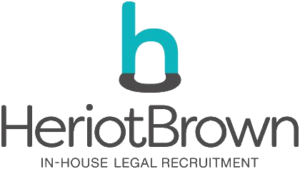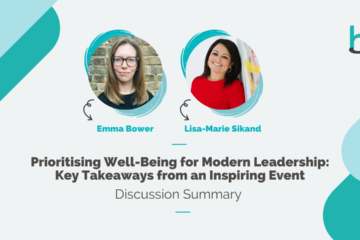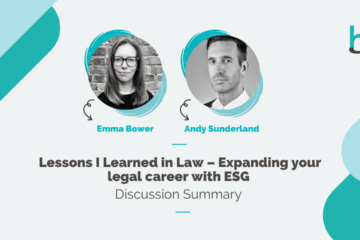Recently I co-moderated my first roundtable with Jamie Fraser for a group of in-house legal operations professionals. Below is a summary of the discussion and looking forward to bringing the legal ops community together again – get in touch if you’d like to join the legal ops community and future discussions!
Should Legal Ops professionals be qualified lawyers? About half of us on the roundtable were not qualified lawyers so there are career opportunities for both qualified lawyers and seasoned operations from other skill sets.
Legal ops professionals with finance or project management backgrounds, do really well in these roles – let’s remember that the gig focusses around improving procedures within the department and the relationship with other departments so speaking the finance lingo or experience in rolling out projects/change are beneficial.
There is something around the credibility piece though. When you’re speaking to the GC and trying to help them, it can be beneficial to be able to say that you’ve been there.
For those who are not lawyers, have there been situations where their lack of legal training has held them back? One attendee felt “feel like it took longer to establish myself and gain credibility with the team of lawyers that ‘I know what I’m talking about’”
Another says, “I think it depends on the organisation that you’re in, how you approach it and what needs to be done/ if the real focus is getting a process sorted around contracts then the legal knowledge will be really valuable.”
“What I love about legal ops is the interface between business and law” further adding “I think it’s a bit worrying that people think that legal ops is all about tech – it’s so much broader”
Yes it depends on the business priorities – one attendee is looking to recruit an analyst to help them understand the data better – “it would be brilliant to have someone who’s role is to crunch data day to day to find those patterns.”
Another recruited a data analyst two years ago, a graduate who’s been using the latest data models. She adds, “it was something that we used in my private practice days and I was able to replicate that in my in-house role. It’s hugely valuable for the storytelling part of being able to explain what the data means, create management dashboards – this is the second role I would always hire now in any future roles.”
How to I qualify my value in legal operations?
If you’re the first person working in legal operations, how do you create that business case to expand your team or showcase the value that you’re bringing?
You need to have a GC that makes a leap of faith that this is necessary – they have to have the belief that things can be better because of the improvements you will make.
You need to quite quickly show what’s happening, what’s different, what’s improved. This could be by getting your head around the biggest spend like external counsel but it can be difficult without a data analyst. One attendee suggests “work with finance and see if you can rotate some analysts from finance to help you. Once you have a grip on what the department is spending and where, you can hopefully make some improvements quite quickly.”
Another attendee agreed that the panel review they did, which involved re-negotiating fees was a great way to showcase their value to both the legal team and the company’s senior management.
Time Sheets?
The obvious way to test productivity is to show what do people do everyday – enter the term that sends chills down every qualified lawyers spine – time sheets!
Many in-house lawyers will say that time sheets are a key reason for leaving private practice so do you want to ask the legal team to go back to something that they dread??
One attendee said they did it for a few weeks, maybe a month just to get the lay of the land. This exercise did help to see that they’ve been spending too long on certain tasks and it highlighted where the low value work is blocking the interesting work for the team – so it can help to improve processes.
Time recording wise, she continues that time sheets actually help with resourcing requests – showing the CFO the data, trends, ticking up in the work has spoken a thousand words. She adds “it’s not that they didn’t believe us before but finance people think in numbers and data so if you can showcase those numbers, then it’s an easier conversation if you require more headcount or resource.
Jamie agrees that data is so important. The main aim of the game is to make your boss look good. Providing your GC with data that they can use in board meetings adds another layer to showcasing what the legal team are doing.
How can the legal team support the legal ops function?
One of the heads of legal ops on the call spoke about how it’s really collaborative in their company and the legal team have definitely drank the legal ops cool aid and often propose automating new things or asking for additional playbooks. It’s great that they’re spotting this but there’s only so much you can do at a time! Top tip with an eager legal team is to invite them to run the project with you and have them help to develop those playbooks and templates that they’ll e using on a day to day basis.
Communication skills to bridge the gap between legal and legal ops. One of the teams has someone in internal communications who sits within legal which is amazing at helping to clarify the value and the why behind legal ops projects. What an amazing resource but let’s face it, not one that we can all have. One of the attendees comes from a media and communications background though so perhaps it’s not a question of dedicated communication support, but hiring with these skills in mind?
Recruiting into legal ops – where to start?
It’s a tricky one as there are so many variables! Every company is different so every company’s needs will be different and means that the need for legal operations will vary.
“The less prescriptive you are, the better, because other than saying ‘I don’t want a lawyer’ or ‘I don’t want a newly qualified/paralegal’. You don’t want to hire a lawyer looking for a backdoor into the legal profession doesn’t work!
One attendee speaks about the challenges internally with HR when recruiting, “so if my own company doesn’t understand what I’m looking for, I’m not sure how successful they’re going to be when it goes outside. Having a network is fantastic as you can go outside of a strict job spec and focus instead on the specific skills that I’m looking for.”
A view from a second attendee agrees, adding that because “every company is different every company’s needs will be different. So what they need from a legal ops person will naturally vary. Some people might need an immediate focus on finance because their finances are an absolute mess but others might not even know yet and require someone to come in and do a discovery exercise”
CLOC supplies a wheel of legal ops characteristics but with 12 qualities, “but realistically you’re not gonna do all of those things in one go and not do them all in one, one at one time”
Where does legal ops sit?
You need to understand from the business what it’s actually hoping for from legal ops and what will be the reporting lines? One attendee strongly believes that the “legal ops person needs to sit on the legal leadership team and needs to report, if not directly to the GC, as closely to the GC as possible and know that there’s a really close line there”
“Because a lot of it flows from the top down in terms of getting that buy in so if you’ve got the buy in from the GC and a position that sits on the legal leadership team you get more credibly.” She adds that if you’re recruiting at a more junior level then it’s vital to think about these reporting lines too.
Wrapping up with a great summary about going into legal ops and making job specs clear, “someone that wants to go into legal ops needs to be extremely motivated, happy to embrace difficult situations and manage change. And I think if you if you manage to attract a quality individual that has that mindset, it’s really important that you also empower them. And I do hear stories about people that have gone to legal ops roles that that sounds that they’re gonna be all singing, all dancing and actually when they get there they just ask to implement a system.”
If you’re interested in joining the legal ops community or finding out more about additional groups we have, please contact me at [email protected]


